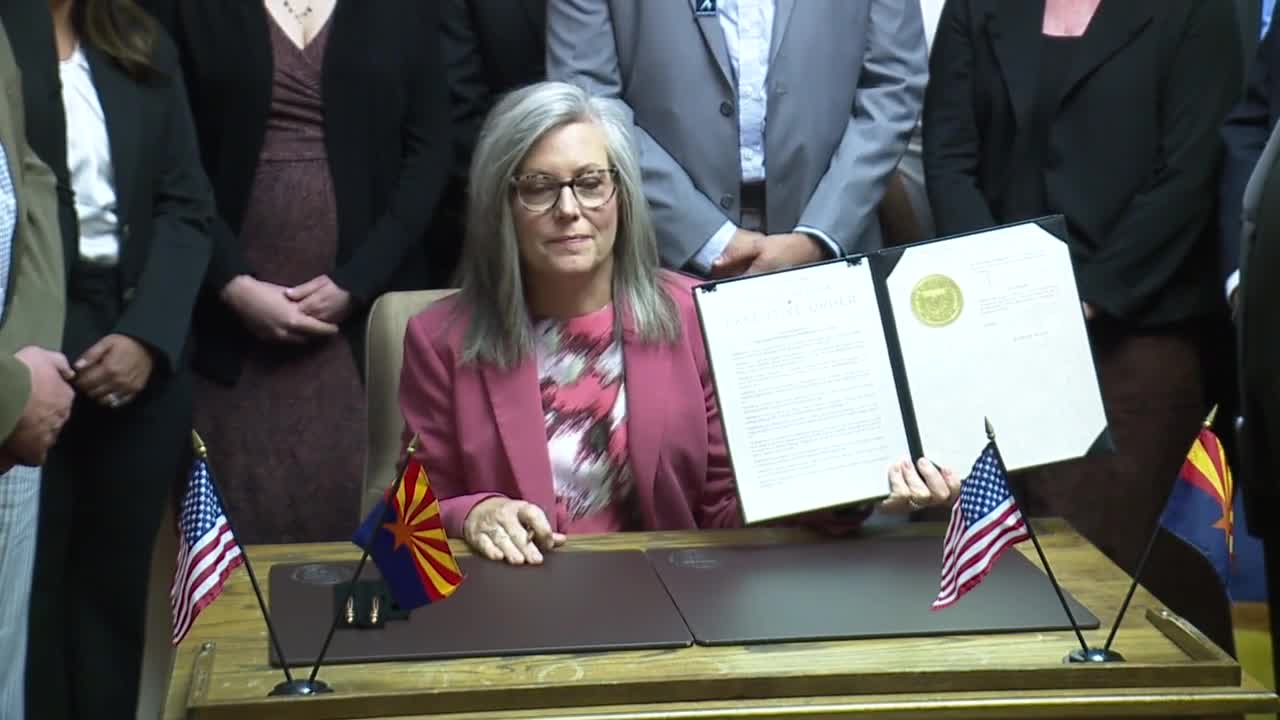PHOENIX — Arizona Gov. Katie Hobbs signed an executive order Monday aimed at lowering energy costs, but it’s unclear how much of an effect it will have because the state’s utility regulators aren’t involved.
The wide-ranging executive order creates a task force to develop plans to address increasing demand from data centers and other big users, cut red tape for energy projects and explore technologies like geothermal energy and solar. It also directs the Arizona State Land Department to quickly identify how to streamline projects on state lands.
“We have incredible potential to deliver affordable energy to every business and family who needs it,” she said.“We just need to unleash it.”
The Arizona Corporation Commission, which regulates utilities and is working on its own energy solutions, is not involved in the task force.
“We'll await the results and findings of the task force like everyone else, but it's important to remember energy policy in Arizona is for the Legislature to direct, not the governor,” Corporation Commission Chair Kevin Thompson said in a statement.
Hobbs said the state needs to be able to both meet the projected rise in demand for energy and keep costs low for consumers.
The governor's Office of Resiliency will also work to support efforts affected by the Trump administration’s canceled incentives for solar, wind and other projects.
“We have one of the most reliable energy grids in the nation, primed for energy of all kinds, nuclear, wind, solar,” Hobbs said. “Very few states have access to such a diverse portfolio of resources, and we must take advantage of this opportunity.”
Hobbs’ order does not specifically mention natural gas, an omission Thompson criticized.
“It's hard to take seriously any Energy Task Force that aims to affordably address the unprecedented increase in peak demand but doesn’t mention natural gas,” he said.
The Corporation Commission is already addressing natural-gas infrastructure, rate policies for data centers and the future of nuclear power, Thompson said.
“It's shortsighted to omit and not consult with the one constitutionally founded body whose main focus is grid reliability and affordability,” he said.
Hobbs’ executive action also requires state agencies to identify ways to cut costs for consumers and expand assistance programs, help tribal nations with their energy projects, plan for how electric vehicles could increase electricity demand and come up with ways state agencies can reduce their energy usage.




